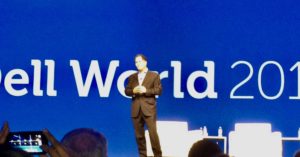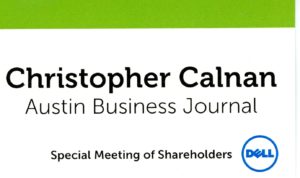“Newspapers should have no friends.”
— Joseph Pulitzer
 BOSTON — We’ve seen the enemy of journalism — and it is us.
BOSTON — We’ve seen the enemy of journalism — and it is us.
Support for journalism and related organizations spiked after uber-vocal media critic President Trump was elected in 2016. Celebrities and political pundits alike professed their moral and monetary support for the media and the role it plays in counterbalancing power.
“Nonprofit journalism groups are gearing up with flood of donations,” the New York Times reported.
Such groups came up with catchy, inspirational slogans like “Democracy dies in darkness” or “The truth has power.” Instead of withering morale, the constant badgering by Trump seemed to galvanize members of the media. But it could be argued that the slogans and cheer leading did a disservice by creating the illusion of protection where little existed. The public was given a false sense of security, assuming that the Fourth Estate is safely guarded. In reality the raft of journalism groups has created a diffusion of responsibility. A dynamic in which “a person is less likely to take responsibility for action or inaction when others are present,” according to Wikipedia. In other words, everyone expects everyone else to tackle the problem.
Where’s the cavalry? It’s perplexing what the journalism organizations charged with defending credible reporting and journalists are doing with the windfall of donations and timely support. Industry watchdog groups appear to be doing just that, watching. Meanwhile, national, nefarious media executives undermine the integrity of journalism. It’s a missed opportunity to prove the haters wrong and demonstrate a commitment to the truth.
In April, I recounted in this blog post the details of a flagrant case of corporate censorship in Austin, Texas. In summary, in mid-2015, an Austin Business Journal manager said that while I was on vacation, Dell Technologies Inc. threatened North Carolina-based American City Business Journals over our coverage. It caved. Tweets were deleted, a story disappeared, media credentials denied by Dell and the reporter who wrote hundreds of unvarnished stories about the company was suddenly given an unscheduled performance review stating that his job was in jeopardy despite the lack of a single human resources issue during 10 years with the company. It was blatant censorship allowed by a media company with a national footprint.
The Dell debacle was indicative of a much larger problem. News organizations are quick to announce investigations when one of its own is accused of unethical behavior such as fabricating information or plagiarism. News execs are eager to assure readers and viewers that integrity is a paramount concern. But what happens when a media company violates basic journalistic principles? Who investigates them and reports on corrupt managers? No one because most reporters are bound by non-disclosure agreements, or NDAs. They can’t receive crucial severance packages if they reveal unflattering details about their corrupt managers. The result is any possibility of checks and balances is totally short-circuited. News orgs have gamed the system and NDAs shield corrupt managers, giving them tacit permission to abuse their power.
Just a few proposed reforms to consider in an effort to promote the integrity of journalism:
- It’s time to subject media execs to the same scrutiny as everyone else. University journalism programs could play important roles monitoring and exposing corrupt news orgs and their managers if the mainstream media is hesitant to hold each other accountable.
- Promote transparency by declaring any news outlet that operates with NDAs ineligible for all awards, state and national. NDAs shield the corrupt and enables them to escape accountability.
- Reimburse rejected severance packages to encourage journalists to report wrongdoing by media companies.
- Assign lawyers to tortious interference of employment lawsuits to shine a light on unscrupulous media executives and the bullies who take advantage of them.
 In Texas, there’s a tortious interference law that provides defendants with up to four times actual damages. A 2012 Fourth Court of Appeals (in San Antonio) ruling on a case called Strickland suggests that the Dell executive who called the ABJ’s parent company didn’t have to make an expressed demand that a reporter was fired. Just the call itself can be considered an act of interference, according to the ruling. “A defendant’s interfering conduct need only be a proximate cause of the harm to plaintiff for there to be liability.”
In Texas, there’s a tortious interference law that provides defendants with up to four times actual damages. A 2012 Fourth Court of Appeals (in San Antonio) ruling on a case called Strickland suggests that the Dell executive who called the ABJ’s parent company didn’t have to make an expressed demand that a reporter was fired. Just the call itself can be considered an act of interference, according to the ruling. “A defendant’s interfering conduct need only be a proximate cause of the harm to plaintiff for there to be liability.”
There’s a world of difference between poor newsroom decision making and outright corruption. We all know that. Yet the patchwork of media-related groups and organizations can be confusing for a reporter attacked for practicing journalism. There’s no dominant group to turn to; what’s worse is that there’s little noticeable solidarity.
One organization, which actually has the word “protect” in its name, said it doesn’t get involved in “labor disputes” when responding to Dell’s censorship. Another group that calls itself “the voice of journalism” came down with laryngitis when briefed about Dell’s tactics.
Such disinterest can have dangerous, far-reaching implications.
Ronan Farrow, now writing for the New Yorker, tried to report on movie producer Harvey Weinstein sexually assaulting women years ago. However, Farrow’s previous employer, MSNBC and NBC, gave into Weinstein’s threats and pulled the plug on Farrow’s story. How many women were attacked by Weinstein in the intervening years? How many careers were ruined because media execs lacked moral courage?
“The question of the complicity of the media and the role the media played in keeping this quiet for as long as it was quiet, are important ones,” Farrow told Recode’s Kara Swisher. “I think there will be more to say about that as time goes on and various investigations into this unfold.”
There’s no reason to wait. Journalism groups and graduate programs need to step in and document incidents. Let news organizations and the executives leading them know that if they abuse their formidable power they’ll be held accountable. Frauds will be exposed and advertisers encouraged to withhold their precious dollars.
They call it a free press, but someone has to pay. In the Dell case, a reporter didn’t actually volunteer, but he was proud to be dumped by Dell for telling the truth. It’s time for others to step up because journalism and the crucial role it plays can’t afford indifference. It deserves better; we deserve better.

